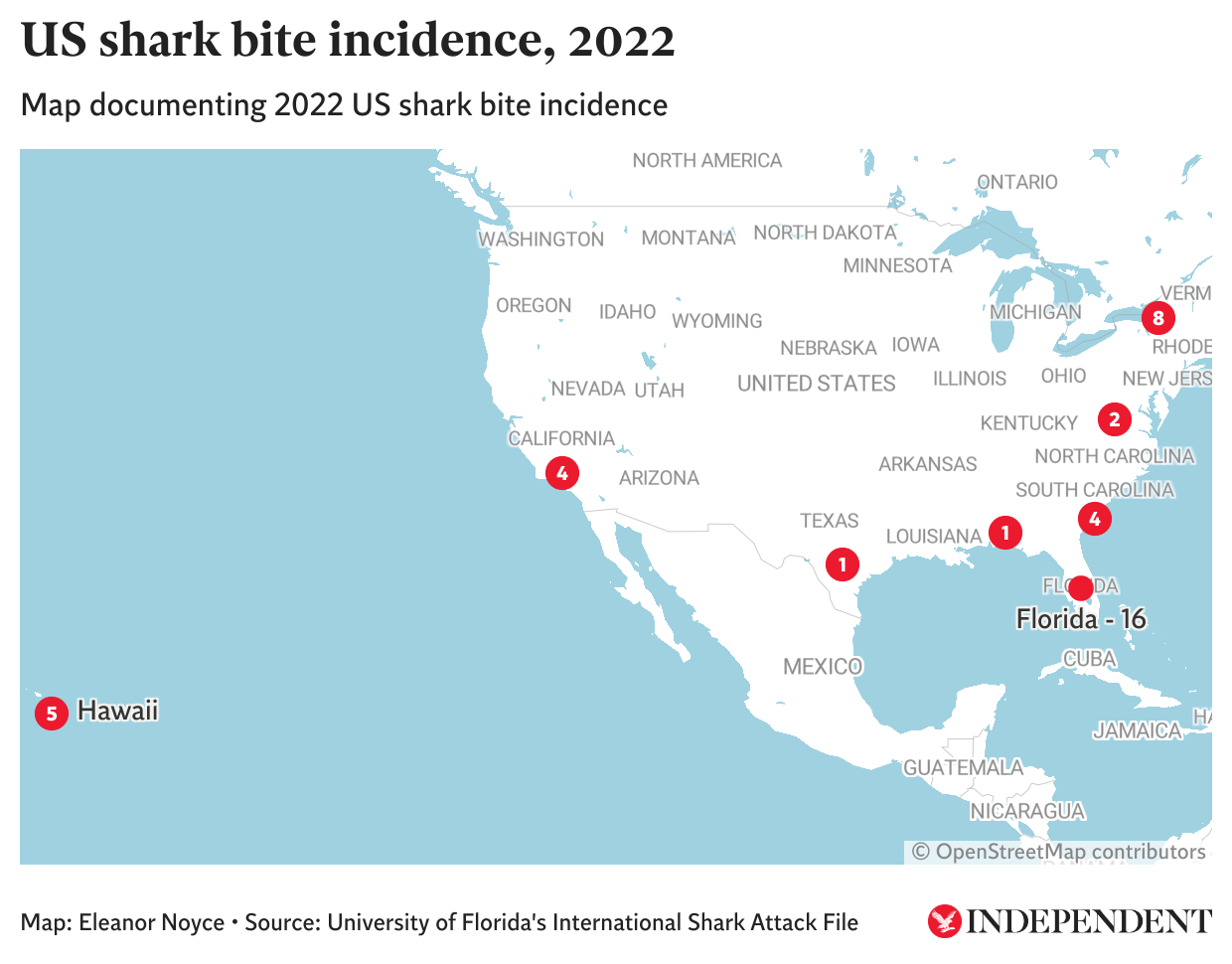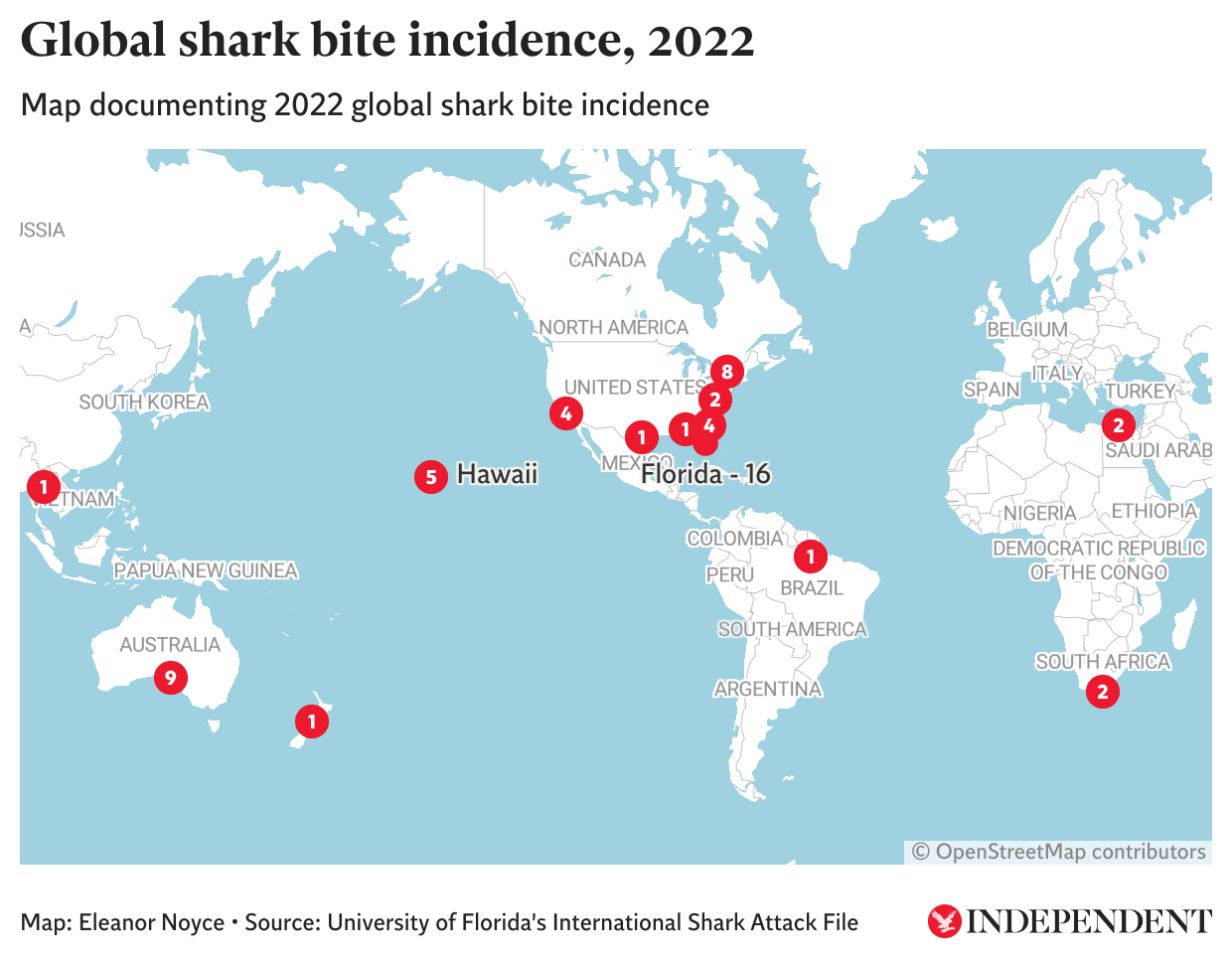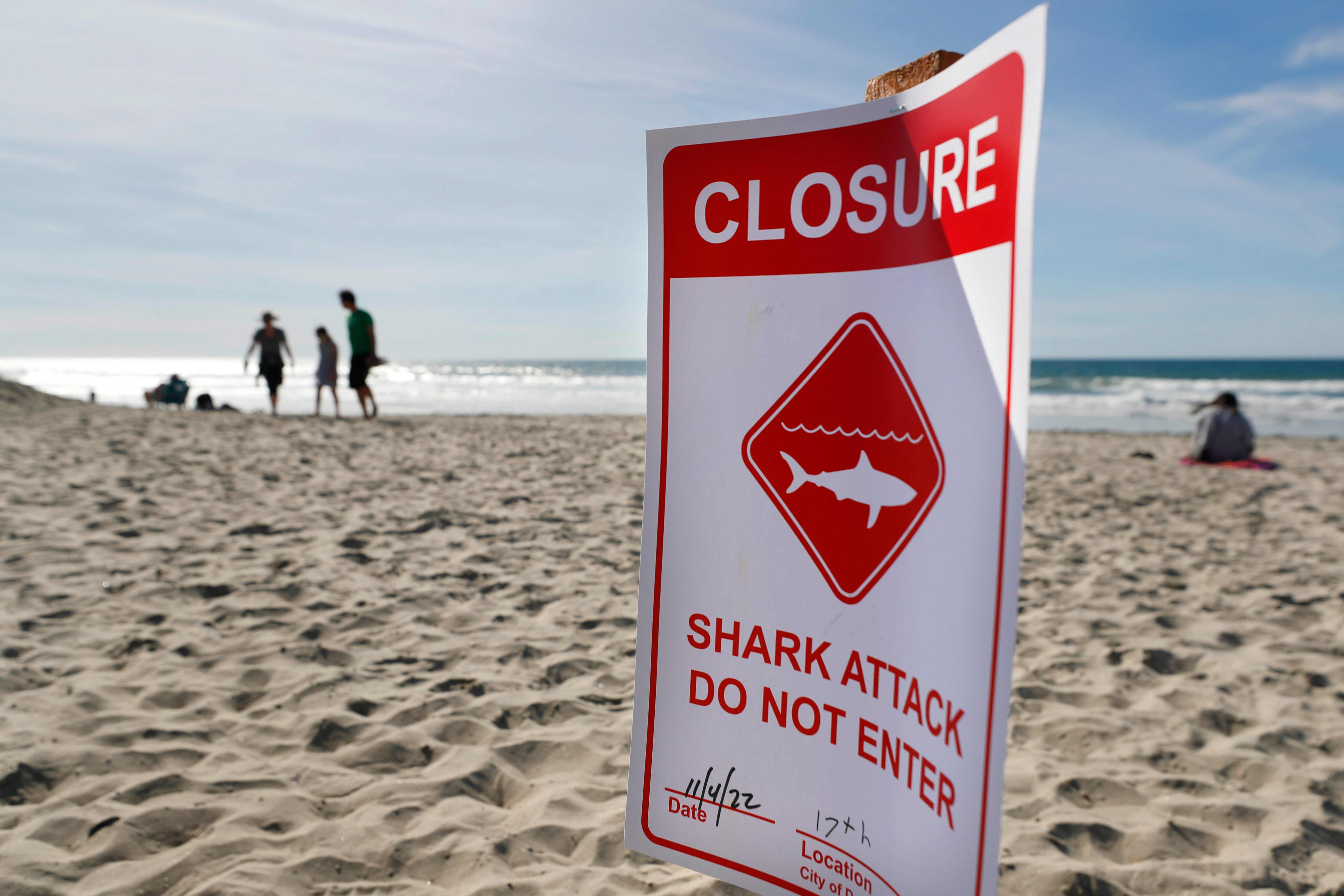Mapped: World’s shark attack hotspots revealed
The University of Florida’s International Shark Attack File finds that there were a total of 57 shark bites in 2022, marking a 10-year low
Florida is the world’s shark attack hotspot, new research has revealed.
With more reported shark bites than anywhere else on Earth in 2022, the Sunshine State saw 16 attacks in total, according to the University of Florida’s International Shark Attack File.
None of these attacks was fatal, but two – understood to be by bull sharks – resulted in those injured needing amputations.
However, the number of shark attacks hit a 10-year low worldwide, with a total of 57 unprovoked bites in 2022. The majority of these occurred across the United States and Australia, of which five attacks were fatal. This was down from nine deaths in 2021 and 10 in 2020.
The new findings indicate that the global incidence of shark bites is decreasing, posing a reduced threat to human life which will give peace of mind to swimmers in shark hotspots across the globe. However, scientists believe that this reduction could reflect a concerning global decline in shark numbers.

The International Union for the Conservation of Nature (IUCN) found that approximately 37 per cent of shark and ray species are now threatened with extinction in 2021, increasing from 33 per cent in 2014. Climate change, loss of habitat and overfishing is understood to be driving the decline.
“Generally speaking, the number of sharks in the world’s oceans has decreased, which may have contributed to recent lulls”, said Dr Gavin Naylor, director of the Florida Museum of Natural History’s Florida Programme for Shark Research.
“It’s likely that fatalities are down because some areas have recently implemented rigorous beach safety protocols, especially in Australia.”
Meanwhile, the University of Florida’s International Shark Attack File emphasises unprovoked shark bites in its annual report rather than attacks which might have been prompted by mitigating circumstances, such as fishing lines cast in the direct vicinity of the incident or the presence of chum or fish guts in the water.
In 2022, there were 32 additional bites that fit the ISAF’s criteria for being intentionally or unintentionally provoked.
Overall, the United States recorded the most attacks last year but just one unprovoked fatality after a snorkeler went missing along Keawakapu Beach in Maui, Hawaii.

Elsewhere, Australia had nine confirmed unprovoked bites, with one attack each in New Zealand, Thailand and Brazil.
Egypt experienced two fatal shark attacks after two tourists were attacked in the Red Sea, where shark encounters are considered to be relatively rare. It is unclear which species was responsible for the bites, though experts note that the shape and colouration of the fins indicate it may have been a tiger shark.
South Africa averages a few bites each year, and in 2022, had two unprovoked attacks. Both of these were fatal, likely caused by white sharks.
Though the global incidence of shark attacks was lower last year, a spike in localised incidents has prompted concern from residents and government officials alike in certain areas.
New York experienced a record eight bites last year. Before these attacks, the state had experienced just 12 reported unprovoked bites in total.
Researchers have attributed this localised increase to juvenile sand tiger sharks taking up residence in Great South Bay, between Long Island and Fire Island. Identified in 2016, the sharks continue to use the sheltered bay as a nursery, where they’re better protected from predation than in the open ocean.
Dr Naylor reports that the majority of bites in Long Island were likely from sand tiger sharks drawn into the surf zone by an influx of baitfish, though for as long as records have been kept, there have been no reported fatalities from this type of shark.
“The Gulf Stream’s eddies ebb and flow each year”, he said. "Sometimes they can come very close to shore, bringing nutrients and fish with them. The juvenile sand tigers will follow the fish, which in some cases leads to an uptick in encounters with people.
“But local perceptions of shark bites rarely map to global statistics. If you zoom out, these eddies unpredictably break off from oceanic currents all over the world in haphazard ways.”

Juveniles tend to be more experimental, Dr Naylor explained, and will often “try things that an adult shark wouldn’t”.
The research follows a fatal attack in Australia at the weekend, the first of 2023. On Saturday, a 16-year-old girl passed away in Western Australia after being attacked by a shark.
Spotting a pool of dolphins, she dived into the Swan River in North Fremantle whilst jet skiing with her friends. The event marks the first fatal attack in the Swan River since 1923.
Overall, the chances of being bitten by a shark remain incredibly low. The World Health Organisation (WHO) reports that drowning is the third leading cause of accidental death worldwide, meaning that coastal features such as rip tides and strong currents statistically pose a greater risk to beachgoers than sharks.
Join our commenting forum
Join thought-provoking conversations, follow other Independent readers and see their replies
Comments



Bookmark popover
Removed from bookmarks